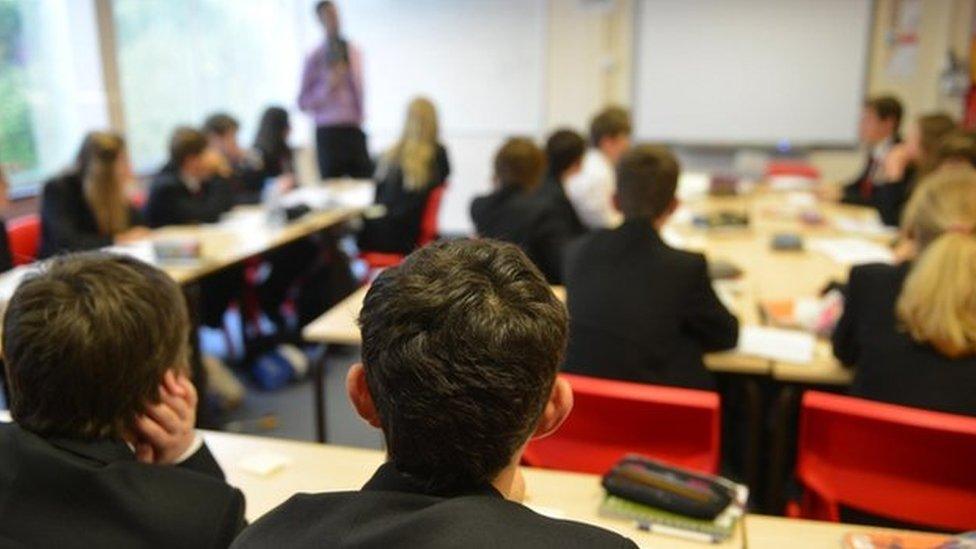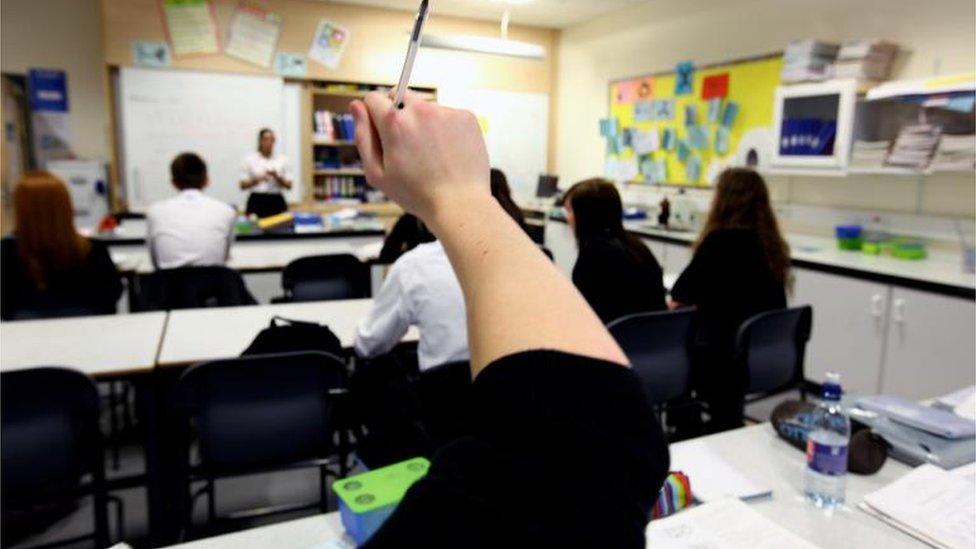Scotland 'not a star pupil' in international rankings
- Published

More than half a million 15-year-olds worldwide took part in tests for the Pisa scores
Scotland is not a star pupil. The country's performance in the Pisa assessments is distinctly average. A teacher writing a report card could easily say: "Disappointing performance. Could do better."
The idea that Scotland's education was once amongst the best in the world sometimes owes more to folklore than hard fact. It is very difficult to directly compare the performances of different education systems across the world.
Pisa attempts to do that; 540,000 15-year-olds in 72 countries took part in the tests early last year covering literacy, numeracy and science. The questions are designed to be "culturally neutral" so youngsters in particular countries are not at an unfair advantage or disadvantage.
In the last set of results, Scotland was above average in reading and science - it is now classed as average. In maths, Scotland remained average.
Between 2012 and 2015, Curriculum for Excellence and changes to the first three years of secondary school - now described as a broad general education - bedded in.
'Uncomfortable reading'
Scotland's Pisa performance decline is a huge disappointment. The education secretary John Swinney admits the figures are "uncomfortable reading".
The Pisa figures are not the last word on education. They are not a definitive measure. There are many critics. But because they are the nearest thing there is to a fair way of comparing the education systems of different countries they have a huge influence on policy and political debate.
One reason they make for such uncomfortable reading for the Scottish government is that the government wants to be judged by its success on education. It makes much of its commitment to raise attainment and narrow the gap between how well youngsters from relatively rich and poor areas do at school.
They may provoke debate on how well Curriculum for Excellence is working out in practice. Some in the teaching unions - which support C for E - have long made points about its implementation. Questions of workload, bureaucracy and stress come to the fore.
For the Scottish government, the figures will highlight why it believes more reforms are necessary.
Next year, standardised assessments in primary schools and the third year of secondary school will start to give more information about how well individual schools are performing.
The government also plans to give £100m straight to headteachers to spend on schemes to raise attainment. It is also looking at school governance - what powers should lie with schools, councils and the proposed new regional education boards?
Profound questions
For opposition parties, the Pisa figures may provide an opportunity to make hay - but for critics from the left, the questions are much more about the implementation of policy rather than the fundamental nature of what has been happening in schools.
For some on the right, the disappointing performance may beg more profound questions.
For example, the Scottish government's planned education reforms are as notable for what is off the agenda as what is on it.
There is no suggestion of a move towards selective education or bringing back grammar schools. And while there is a debate about what powers councils should have over education, there is no suggestion that schools could simply leave local authority control. The idea of parents or others being given public money to run schools is still radical and hugely controversial.
Pisa does not measure everything and has its critics. It does not, crucially, measure the outcomes for young people. The Scottish government would point to improving exam passes and the number of young people who reach "positive destinations" when they leave school as evidence of success. It would also highlight the number of young people who now go to university as a positive.
But it is difficult to find anything to celebrate in the actual Pisa figures.
- Published6 December 2016
